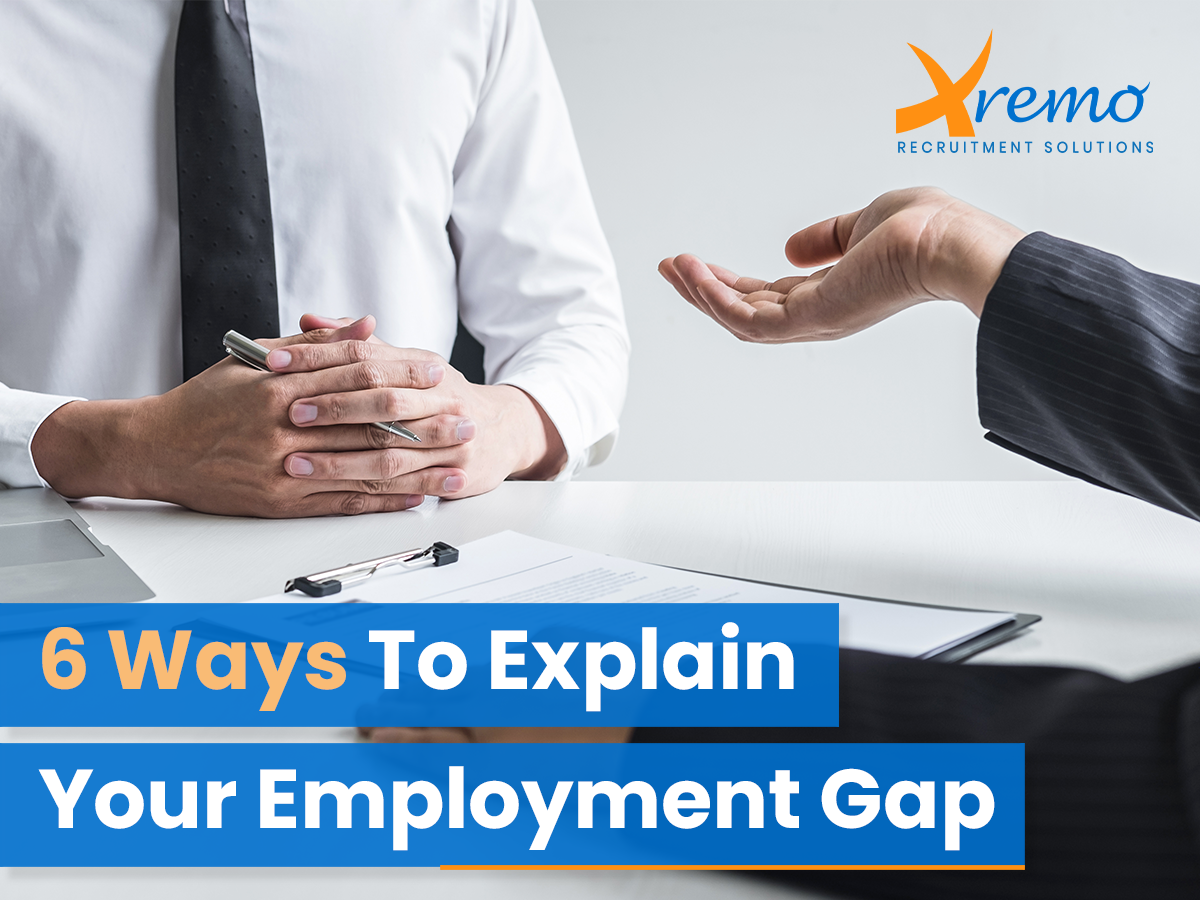Having strange unexplained gaps in your employment history could give you the jitters. It’s perhaps the most challenging phase of any job seekers to be seen as jobless for some time. It seems that to some employers, such candidates resigned from a certain job without good enough reasons or they were let go because the employer did not view them as valuable enough to be retained. It’s unavoidable that job gaps are a negative thing in employers’ minds. This is because of the simple fact that they are “employers” and “employing” is what they do.
But what if we told you that this is a very normal thing in this era? Here we are in the age where remote working has become the new normal as well as young people trying their hand at entrepreneurship at a young age because they are young and have time ahead of them. Time is the key here and we will explain this shortly. Now back to the topic at hand.
Employment gaps from the hirer’s point of view
If you were the one looking to hire someone, how would you feel when you look at someone’s resume and see long time gaps of unemployment? Chances are, you will choose to be particularly careful or even suspicious with such applicants and go for better options.
The hirer’s goals and risk
Now the applicant on the other hand seems to be at a disadvantage, especially when there are hundreds of resumes to compete with. Given this situation, we’ll have to look at a few strategies to use in your resume as well as how you can explain yourself when you are called for an interview. Do remember however that the recruiter’s main goals are to see if you fit the role and whether there is less risk to employ you as compared to others. Let’s look at a few of these situations.
Too many small gaps in a short time period.
This means that the employee has done a lot of job hopping. These gaps appear to be a few weeks or a month between jobs. In some cases, there are also gaps of weeks or a month between a year or less of working. This indicates that the employee didn’t last long in their jobs. If you are a graduate of two years and this is what your employment history looks like, maybe some employers might understand but, you are still a risk to employ as they feel you might repeat the same pattern.
1. Disregard irrelevant job histories in your resume and focus on the relevant ones.
To deal with this specific situation, choose to put down the best, longest and most recent employment in your resume and disregard the others where you worked for less than six months. Those places where you spent the least time are irrelevant in this regard. In most cases, employers and recruiters won’t grill you for a few weeks or a 3-4 month gap because that would have been your job hunting period. If the gap is longer than six months, that is where you need to explain.
Do I have to provide my full employment history in my resume?
The answer is no. Just put down the 4 to 5 most recent jobs over the last ten years. When preparing resumes, relevance is the main issue above all else. Play up the relevance and how you are a good fit for the job as opposed to missing time gaps.
Reasons people give to explain time gaps
- Family or legal Issues
- Caring for a loved one
- Re-evaluating career and personal goals
- Studying and skills training
- Longer that expected job search
- Retrenchment
2. Be honest, brave, enthusiastic and be upfront
As we mentioned earlier, being unemployed for some part of your life is a natural thing especially in these times. Not everyone is going to be continuously employed all their lives. This is partly due to the prevailing skills gap in this region as well as rapid skills change and demand in all industries. Recruiters and employers know this so do the following in your resume and interview:
Be honest and brave enough to discuss about those gaps but you must know one important thing. They don’t want you to give a long story about it. Just give one or two concrete reasons why there was a gap. Remember again not to bad mouth anyone. For example, here’s a sample interview conversation.
Employer: We notice that there are some gaps in your resume. Would you care to explain?
You: Certainly, I’d like to point out the years 2014 and 2017. In those years, a family member was taken ill and that affected my work schedule. As such I made a decision for my family. In 2017, I had taken time off to complete my studies. Further details of these gaps are explained in my cover letter.

3. Caring for a loved one, family and legal Issues
For most people in life, caring for an aged parent or a loved one who is sick is a life priority. The same holds true for any legal issues as these can be a long drawn out process. It’s also well known that most jobs these days are generally stressful and people do go on a voluntary break to re-evaluate their career and refocus on their personal goals. Doing so would bring less stress on their employer as well as themselves. All these are things that everyone goes through in life and can be explained rationally.
4. Re-evaluating career and personal goals
Re-evaluating career and personal goals is the riskiest reason that you can present to your employer, as it can cause misunderstanding. Try your best to avoid doing this.
5. A longer than expected job search and retrenchment
If you’ve been retrenched, just tell them as it is without placing any blame. Talking about a long job search, which is common these days, some employers like to ask, “Why do you think you took this long to find a job?” just to see what your answer is. Suddenly you feel small, don’t you? You feel compared to others who could be better because they “have a job”.
Far from it. They just want to see how you answer and gauge your attitude. This is how you answer.
“I applied to jobs that were closer and more specific to my skill set or experience. This way, I can manage my employer’s expectations as well as what I demand of myself better, than just going for any job that I can do.” “I believe this is why you were one of the very few who actually invited me for this interview”.
Bingo! That will give them a powerful reminder of why they called you for that interview in the first place and get on with the next phase of the interview instead of asking trivial questions like the above. It’s not strange how a single bold response has the power to cut through all the chase and have them start talking about more important things like their expectations, the salary and benefits quite quickly.
6. So how do I explain myself?
A short and concise explanation (like above) should suffice for things concerning family and medical issues. As for going for studies and training, these are welcome plus points as the employer stands to benefit from them. Just detail out the specific skills and how they made you better. Then there’s also volunteerism. What did you do in your free time? Were you just watching TV and being idle or did you use your time well?
It’s also understandable that your job search took longer than expected or you ended up in a position that was unsuitable for you in the long run. All these are normal and can be explained like below if you are compelled to do so.
“I was employed in Company A from January 2020 till March 2020. However, I have left as I felt it just wasn’t for me because as I found out, there was a lot of mismatch in my skill set and what they expected in that short time.” “I’m seeking a position more in line with my skill set so I can bring more value in my work”
How about a cover letter?
So there, planning is key especially if your break from work was recent. Employers won’t be concerned about anything that happened years ago. Honestly and confidently approaching the work gap will set you apart from those trying to simply explain it away. In this regard, plan your answers and write them down in a cover letter. This will help the employer see this early and not find them out by scanning your resume. You pointing this out shows that you’re brave enough to talk about it. Then, train yourself to speak the same words as you wrote them in the cover letter. This way, you’ll sound consistent.
Should you need personalised coaching in this area, call us up for a chat and we’ll figure out the best way forward for you!


